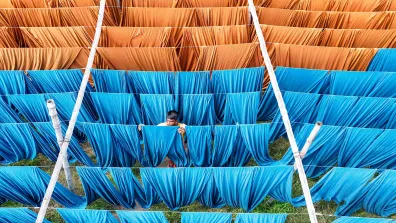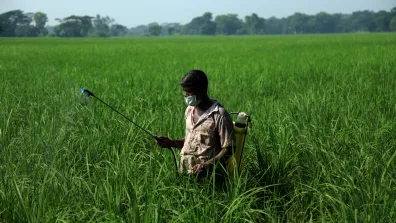More debt won't solve Sri Lanka's debt crisis
War on Want is calling for the cancellation of Sri Lanka’s debt. We stand with our Sri Lankan partners in their fight for an economy which benefits the most marginalised, based on food sovereignty and respect for workers' rights.
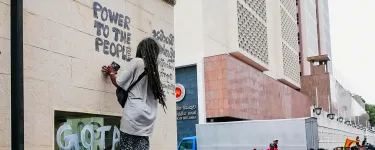
Sri Lankans are facing shortages of essential goods, daily power cuts — and the country is running out of fuel for public transport services and medical vehicles. Spiralling inflation reached highs of 55% in June, sending the cost of food, gas, medicines, and other essentials soaring [1] — and pushing millions into poverty.
This is the result of a crisis driven by international debt — a crisis that has been unfolding for decades, but is becoming ever more brutal for the Sri Lankan people. And now, millions are coming together to reject the injustice ordinary working people face. Nationwide protests have been ongoing for months, and Prime Minister Wickremesinghe – brought in to lead a unity government – has been sworn in as interim-President. However, Wickremesinghe is part of the political establishment that led Sri Lanka into the current crisis, and millions remain in the streets demanding his resignation.
What’s driving the political and economic storm?
At the centre of Sri Lanka’s political and economic storm is international debt. Successive Sri Lankan governments have borrowed heavily from international lenders, with borrowing accelerating across the last ten years to pay for the country’s post-civil war reconstruction. Sri Lankan movements and civil society organisations have denounced this behaviour by Sri Lanka’s political leaders as irresponsible.
The country’s reliance on foreign investments from private and state lenders, and loans from international financial institutions — including the International Monetary Fund (IMF) — means the Sri Lankan economy is particularly unstable.
Along with heavy borrowing, Sri Lankan political leaders have adopted policies of deregulation and privatisation — cutting taxes for the wealthy and creating low-tax privileges for foreign investors. Combined with the impact of the Covid-19 pandemic, which ripped through Sri Lanka’s already fragile, debt-laden economy, ravaging the key tourism, plantation and garment export industries, and Sri Lanka was toppled into the current crisis.
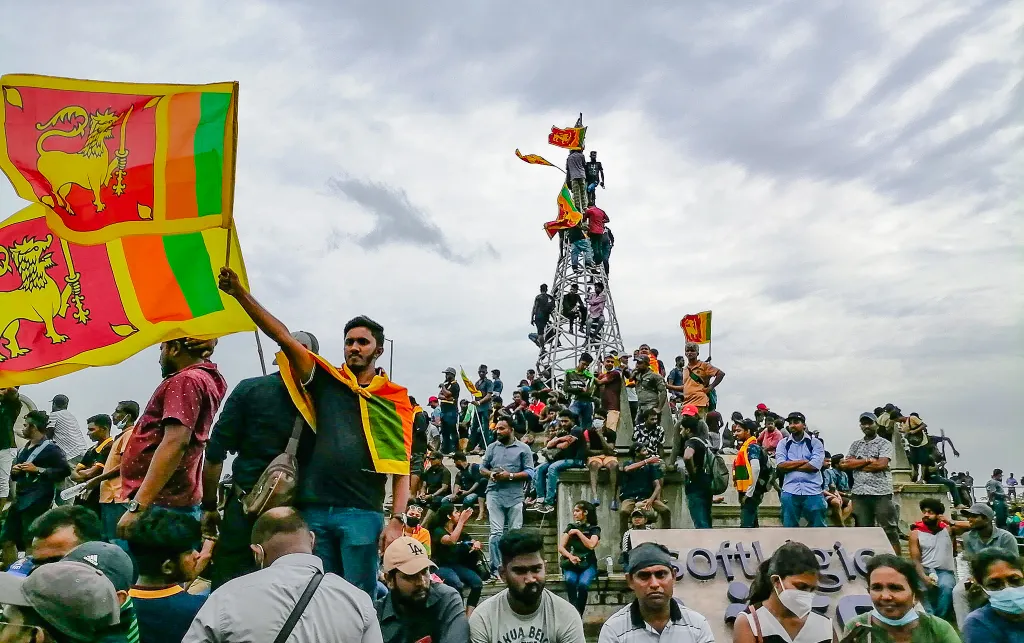
Servicing debt
Sri Lanka has spent three quarters of the last 40 years in the IMF’s ‘macroeconomic stabilisation programmes’, which essentially provide countries with huge loans, often perpetuating poverty and inequality in Global South countries. These loans come with conditions and directives to implement specific economic austerity policies. A country’s debt repayments must be prioritised over social security schemes or investments in public services, which would benefit ordinary people. Sri Lanka has been tied into a vicious circle of debt servicing: in recent years, over 40% of government spending was paying off interest on its foreign debts.[2]
In 2021, Sri Lanka’s foreign debt was equal to 64.2% of its Gross Domestic Product, or GDP – a measure of how well, or badly, a country’s economy is doing – and its total debt amounted to a staggering 119% of its GDP.[3] Sri Lanka’s debt-dependency has seen it focus its economic strategies on the sectors which will bring in foreign currency — export industries. This has meant producing clothes for US and European markets (accounting for 52% of all Sri Lankan exports), producing tea, coffee and spices for export, and investing in tourism development. The pandemic’s decimation of these industries, which are major sources of employment, pushed half a million more people into poverty.
And now, amidst its economic crisis, Sri Lanka has been unable to meet its debt repayments, recently defaulting on US$51 billion worth of debt. Defaulting on debt makes it harder and more expensive to borrow money in future.[3]
The Sri Lankan government has now begun further negotiations with the IMF to resolve the debt crisis. War on Want’s Sri Lankan partners have decried the lack of public information and involvement of civil society in these negotiations. Many Sri Lankans fear that the IMF and World Bank, will enforce the same ‘solutions’ that caused and fuelled the current crisis: further deregulation, cuts to public services, privatisation and poverty wages pushed even lower.
Instead, solutions must be found that put people first and centre human rights, to bring an end to the spiral of debt. Whether the country’s new political leaders will succeed in navigating a path out of this crisis advantageous to working Sri Lankans, remains unclear.
Sri Lanka’s role in the world
Prior to the crisis, Sri Lanka’s income inequality had remained largely unchanged for 40 years despite its economic growth. The richest 20% in society took over 50% of all income, whilst the poorest 20% received just 5%.[4] Sri Lanka’s low-tax policies to attract foreign investors, and corporates’ chasing of cheap labour to maximise profits, have limited employment opportunities for many working Sri Lankans to providing low-wage labour for foreign investors.
Sri Lanka’s role in the world, as with many countries in the Global South, is assigned by the rules of the global economy. Sri Lanka’s large foreign debt, relatively weak national currency, high dependency on stronger foreign currencies (such as the US dollar), and the unequal nature of global trade rules, all mean it is highly exposed to fluctuations in the global economy, and to multinational corporates withdrawing their investments. This leaves Sri Lanka and other Global South countries more vulnerable to economic crises. When crises do hit, the savage cuts and privatisation of social services — enforced as loan conditions — leave millions without a safety net; with workers, marginalised people, and rural populations the hardest hit.
Garment Workers
Sri Lanka’s need to attract foreign investment has seen it prioritise export industries, with the government luring in foreign employers with low-taxes and beneficial conditions. Yet vast corporate profits are taken out of the country, without translating into better pay or conditions for Sri Lankan workers. Workers’ wages have remained low, working conditions poor, and legally-guaranteed workers’ rights and environmental standards are widely ignored or eroded by employers — with little to no consequences. This has created a "race to the bottom" to make investment opportunities more attractive to multinational corporates.
War on Want’s trade union and garment worker partners FTZ & GSEU, Dabindu Collective and Women’s Centre, have seen first-hand how predominantly young women from rural areas have paid for Sri Lanka’s place in the ruthless global fashion industry.
Precarious contracts, wage theft, poverty wages and low health and safety standards mean millions suffer in-work poverty — unable to care for their families' basic needs whilst working long hours in dangerous jobs.
The Covid-19 pandemic saw thousands of garment workers with weak or informal employment agreements left destitute, as major clothing brands cancelled orders with garment factory suppliers. Clothing brands refused to pay for their orders, resulting in workers left unpaid for work they had already completed. Others saw their wages stolen, or were forced to expose themselves to the virus in work environments without basic protections.
Garment worker unions have been fighting back, but the current crisis threatens to undo hard-won victories, such as collective bargaining agreements and binding health and safety standards.
We have the right to demand accountability from national and international actors for their failed policies which have resulted in indebtedness, rising cost of living and unemployment.
Garment workers unions are clear that any future deals with the IMF must put human rights first; and clothing brands must not be allowed to use the threat of moving their business to other countries to further erode workers’ rights. This is why Sri Lanka's National Labour Advisory Council has demanded that the “conditions laid down in the agreements entered into with the International Monetary Fund and the contracts made with them be placed before the public, before the official endorsement.”
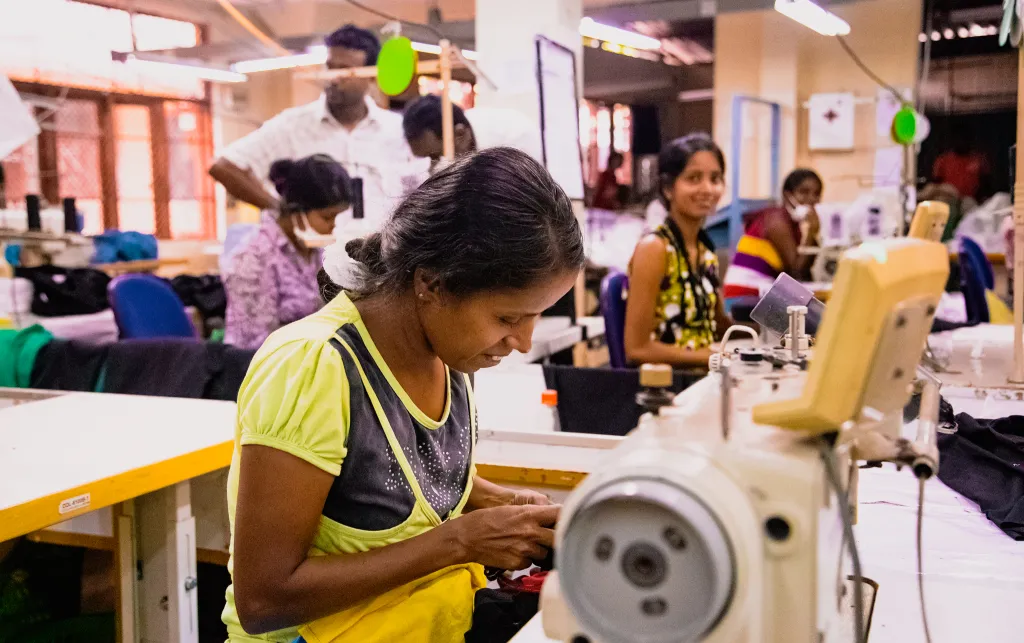
Sri Lanka’s food crisis
Sri Lanka’s vital agricultural sector, the main source of work for rural people, has also been pushed to adopt an export-oriented model, following IMF and World Bank directives. The Sri Lankan government discouraged traditional farming practices of subsistence agriculture, where farmers grew food crops solely to meet the needs of their families or smallholdings. Instead, the government encouraged the industrial production of cash crops, such as tea, for export to the global market. As a result, Sri Lanka now imports more food than it grows. This has severely impacted Sri Lankans food security and food sovereignty. Sri Lankans are now less self-sufficient and depend on food imports from neighbouring countries, as well as fertiliser and seeds from the Global North.
These investments come with conditions to deregulate further – a policy at the root of the current situation [...threatening] the rights of the people and increasing land grabbing and the seizure of natural resources.
Peasant family farming on small plots (around two hectares) produces around 80% of the country's food, despite occupying only a small fraction of arable land.[5] The Sri Lankan government recently promised to promote smallholder, farmer-led agriculture, in a transition towards an ‘agroecological’ way of farming, using sustainable methods that work with nature. In 2021, there was an attempt to ban chemical pesticides and fertilisers – mostly due to the lack of foreign reserves. This ban was implemented suddenly without a planned transition.[6] Farmers were not given guidance or training on the viable alternatives, meaning many were unable to plan their harvests. As a result, many farmers were forced to abandon their crops in the fields, increasing the country's already high dependency on imported food — and pushing ever greater numbers of Sri Lankans into poverty.
Many farmers are also facing a private debt crisis, caused by uncontrolled microfinance schemes. Small loans, with high interest rates, have been handed out by global banking institutions to farmers and households with little income or savings. This irresponsible lending has been pursued as part of the UN's agenda to end poverty.[7] In practice, it has made vast sums of money for rich foreign lenders whilst burdening rural households with unpayable debt. Rural Sri Lankans have been forced to seek out dangerous, low-paid jobs, in order to gain hard currency that can be used to service their debt. This private debt crisis is a small-scale mirror of the national debt crisis.
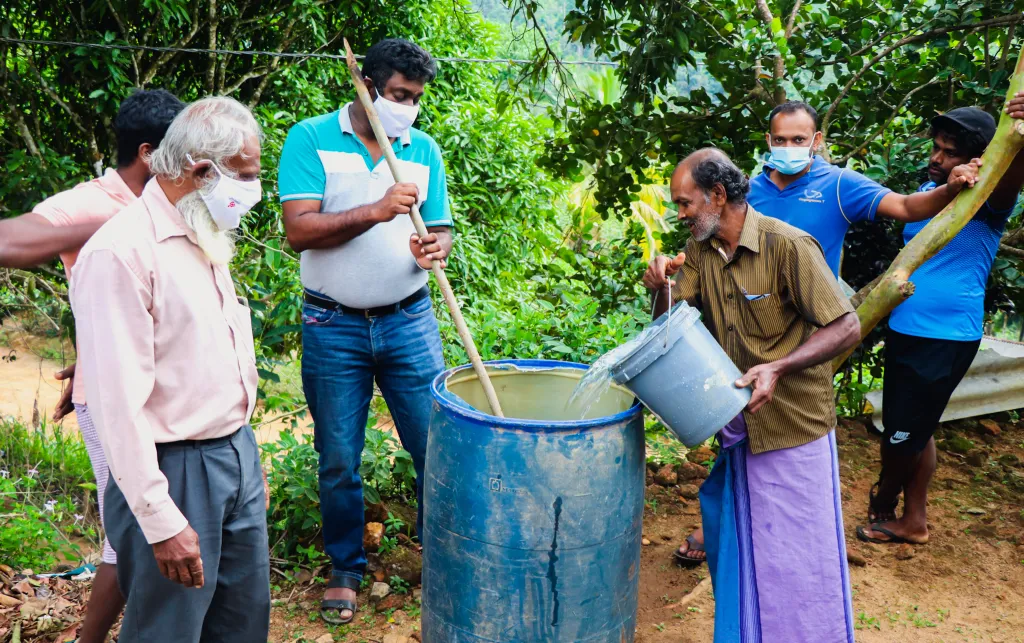
The way out
The causes of the crisis are clear. Sri Lanka’s economy is unstable and prone to global shocks, with its high dependence upon international loans, and focus on foreign currency-generating export industries. Low-tax rates for foreign investors have meant that while multinational corporations enjoy hugely profitable operations, this is of no benefit to ordinary working Sri Lankans.
The relatively little tax revenue generated has meant little investment in public services or social security schemes; instead leading to rising inequality in a country where only wealthy nationals and foreign investors benefit from government tax cuts. It is those excluded from decision making who benefit the least from exploding corporate profits — whether garment factory workers, landless labourers, or agricultural smallholders.
The interference of international financial institutions, such as the IMF, in the policies of Sri Lanka has eroded internal democratic processes and oversight of the country’s policies by its people. IMF loans have enforced austerity measures on the country: deregulation, privatisation, and the dismantlement of the public sector.
We stand in solidarity with our partners and the Sri Lankan people, from garment workers to peasant movements, in demanding systemic change that puts people before profit. Whilst strategies on how to proceed differs between Sri Lankan movements, the only route towards a just future is for ordinary Sri Lankans to take control of their political and economic future.
Our partners MONLAR, a network of farmers’ organisations across Sri Lanka, are demanding a full cancellation of Sri Lanka’s debt.[8] They are asking that the government upholds civil rights to allow peaceful protests; and starts a process toward a future peoples’ government which would democratically formulate and implement economic policies to provide short-term relief to the crisis, as well as sustainable long-term solutions for the future of Sri Lanka.
We echo our partner's calls. The foreign debt crippling the country must be cancelled, and a new way forward, based on the respect of human rights and the inclusion of those marginalised, must guide political and economic policies — as is already enshrined in the Sri Lankan Constitution and international human rights treaties.
The UK’s role
The Sri Lankan crisis is not an exception or an isolated case, but typical of countries in the Global South, within the current global system. The UK and countries in the Global North must support a just and equitable future for Sri Lanka.
55% of Sri Lanka’s debt is owed to private lenders and is governed by English and New York-state law.[9] The UK has a unique ability to pass legislation that would force private lenders to take part in debt restructuring (as a temporary measure) and ultimately, debt cancellation. Partial and complete debt cancellation has been undertaken at least 30 times in the last 70 years, for various countries from Germany to Ghana.[10]
The UK should support the establishment of a transparent, binding, multilateral framework for debt crisis resolution, and the establishment of a UN body to rewrite global tax rules – to ensure that Global South countries are able to participate as equals in international tax rule setting.
Lastly, the UK should introduce country-by-country reporting without delay. This would require multinational corporates to publish data about their activities; the sales, profits and taxes paid in every country in which they operate. Making this information publicly available would discourage corporate profit shifting to tax havens, which provide low tax rates and high levels of secrecy.
For centuries, the lives of those in the Global South have been sacrificed in the pursuit of profit, in the interests of the Global North. Exploitation by wealthy countries and corporations has kept the Global North holding the power and the purse strings. War on Want stands with its partners around the world to call for an end to this injustice.
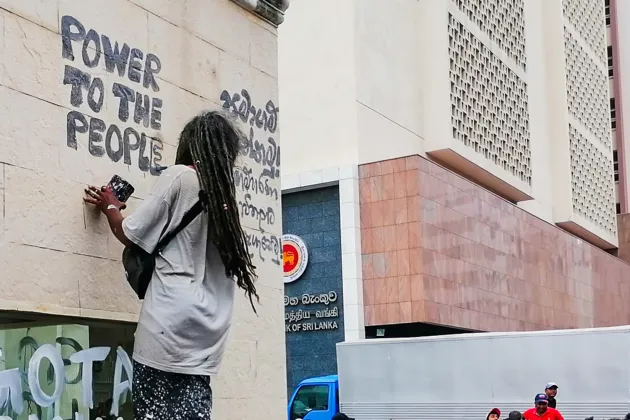
Share this article on Twitter
Will you share our analysis of the crisis in Sri Lanka, and build pressure on the UK government to hold lenders and corporations accountable, and to cancel the debt?
Share on TwitterCredit for main image: Visura Media/MONLAR
[1] https://www.reuters.com/markets/rates-bonds/sri-lanka-cbank-raises-rate…
[2] https://publicfinance.lk/en/topics/Interest-Cost-Accounts-for-717-perce…
[4] https://www.cepa.lk/blog/the-correlation-between-poverty-and-inequality/
[6] https://viacampesina.org/en/lessons-from-sri-lankas-agrochemical-ban-fi…;
[7] https://www.cadtm.org/Submission-of-the-Collective-of-Women-Affected-by-Microfinance-to-the-UN
[8] https://viacampesina.org/en/in-solidarity-with-the-people-of-srilanka-a…
[9] https://www.imf.org/en/Publications/CR/Issues/2022/03/25/Sri-Lanka-2021…
